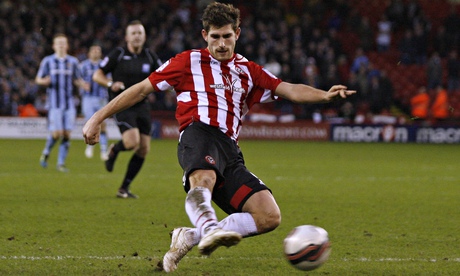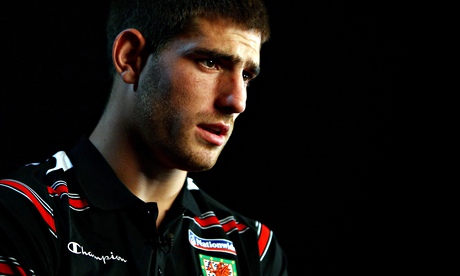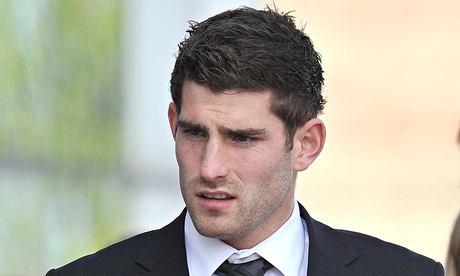Football has a problem with women. It was there every day, in every training ground, every stadium and every press box I entered. The five years I spent working as a football journalist were so steadily and fiercely degrading, they very nearly destroyed me.
A good day meant being belittled, having my knowledge questioned, or my attire, or being complimented on the quality of the pastries at half-time because I stood too close to the catering table. A bad day meant being harassed, phoning a player for an interview to be told he was naked and intending to discuss a very different kind of performance.
I could try and recount all the times I was pressed up against or lunged at or spoken to or about with unbridled vulgarity but, after a while, it became so commonplace that I stopped noticing it. And therein lies the problem.
In a week where much has been made of “locker-room banter” and its pervasive misogyny, we haven’t yet talked about the sporting world, where it originates.
This is a world where normal rules appear not to apply, as the Ched Evans case demonstrates. In the regimented world of football, freedom is what happens in dark nightclubs and dim hotel rooms: freedom from coupledom, from fatherhood, from accountability. In the football world it is common for multiple players to have sex with the same woman on the same night, just as it is common for them to believe they acquire consent simply by virtue of being footballers (although Evans maintains he did obtain consent).
I shouldn’t feel the need to explain that I worked in football because I grew up loving it and playing it, raised by a mother who loves it and plays it. But I do. Because I always felt under suspicion that I worked in football for some unsavoury reason, like some biblical Delilah intent on sapping the athletes’ strength with sexual sorcery.
Once, after a job interview at a leading sports news outlet, two of the men I was to be working with walked over to evaluate me while I stood in front of them.
“She’s fit,” one said, looking me over. The other replied, “Yeah, but I wouldn’t dip my pen in the company ink.”
You’re expected to come into the industry and abide by its codes, to silently smile through the “banter” and remain chaste. If a woman sleeps with a player or a manager she is forever cheapened, but he isn’t.
During my time as a football reporter, I had a relationship with a player, a consensual relationship lasting over a year. I kept the relationship secret because I knew it would reflect badly on me. And it did. My reputation in the industry was tarnished with gossip. I still feel shame and guilt about making that choice. The reputation of the player, meanwhile, was unaffected by our relationship, he was free to be hailed a hero on whichever turf he tromped across, but the cost for me was my professional credibility. This mentality, by extension, is one that permits a woman’s sexual history to be held up as an adverse reflection of her character.
There are other women working in football who have had flirtations – dalliances, even – with men in the industry. It doesn’t affect their ability to explain the offside rule, or the men’s ability to do their jobs. But those women are wise to remain reticent or they risk being seen as predatory interlopers whose sole purpose in infiltrating the industry is to bring home a prized sexual scalp.
In 1921, when women’s football was at its most popular, the FA banned women from playing on association grounds. The ban lasted until 1971, and women’s football did not come under the auspices of the FA until 1993, setting the women’s game back behind the men’s by 60-odd years. This is why the men’s game is so revered, and of the few opportunities women have had to participate fiscally in the football sphere, the most lucrative are to be a wife or a girlfriend or to “kiss and tell” to the tabloids.
The dynamic is such that, for many in the football world, women are viewed almost entirely in terms of their sexual currency. Is she fit? Would you do her? Sheffield United fans are still singing of their former player Ched Evans, “He’ll shag who he wants.”
And it’s not just on the terraces. We’ve seen the disgusting, debasing language Richard Scudamore, the executive chair of the Premier League, has used to talk about women in his field. And yet the FA did not punish him. He remains in one of the most powerful positions in the industry, collecting multi-million-pound bonuses and continuing to set the tone.
Locker-room banter is boardroom banter is press box banter is standard banter in every corner and corridor of every institution in the football world. Locker rooms should not be safe spaces in which sexism and misogyny are free to exist. Discrimination of any form should be challenged.
A player once told me, “Women don’t belong in football.” When I questioned him on his views, he told me that he didn’t see the football world as a safe space for women. And it wasn’t for me – which is precisely why we need more women working in football. We need to normalise the presence of women as professionals in the men’s game, to encourage respect and camaraderie. We need to invest more in women’s sports, so that the playing fields become level. We need to stop infantilising footballers, treating them as beings too precious to pay their own parking fines or make their own decisions or accept the consequences of their actions. We need managers who will not permit misogynistic banter in their locker rooms.
Because when locker-room banter remains unchecked it spreads, it produces Adam Johnsons, it pardons Ched Evans’ behaviour, it destroys women.
For a football club to greet the outcome of a rape retrial with “delight” shows how far we still have to go. Now is not the time to “move forward and focus on football”. Now is the time to change the conversation.











